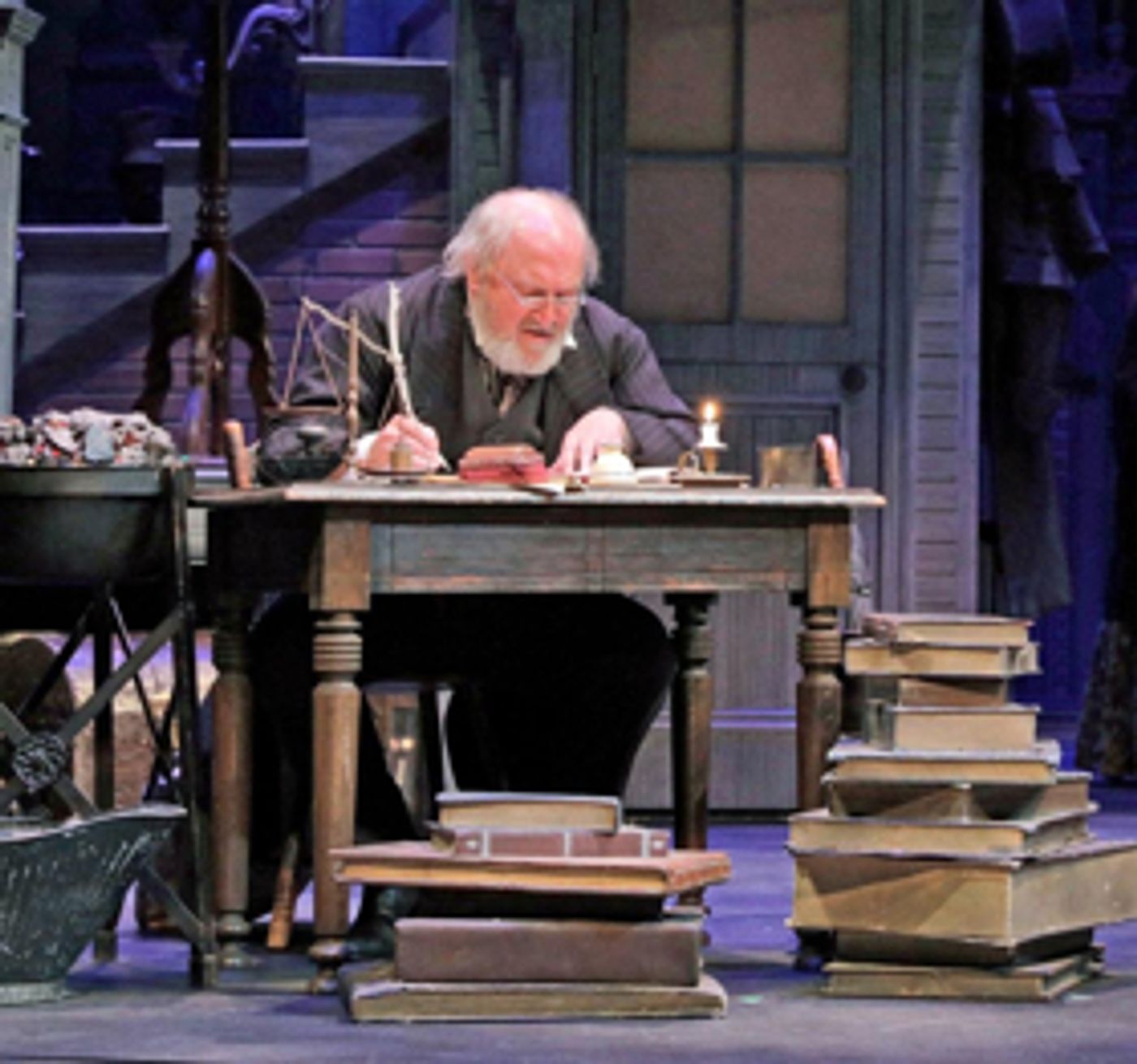Feature: A CHRISTMAS CAROL at Kansas City Repertory Theatre

Charles Dickens, inventor of "A Christmas Carol" now playing on the stage at the Spencer Theatre, was a fascinating character during his relatively short lifetime. It turns out he was very much politically active in his day and not shy about sharing his opinions.
"A Christmas Carol" was an outgrowth (in part) of Dickens' political activism. He advocated for better living conditions and better education for the less advantaged in society. This reflected his childhood experiences. Dickens' father (John Dickens), a clerk for the Royal Navy, served time in a debtor's prison and Dickens' own education was interrupted by his time as a twelve year old child laborer in a London shoe polish factory.
Charles Dickens became a respected political journalist early in his career after having married the publisher's daughter. At age 24, he published his first extended work, "The Pickwick Papers." He pioneered serialization of many of his works, became an actor, and a platform performer reading his works for large audiences.
In early 1843, Dickens was much affected by a government report about child labor in Britain's factories and mines. The report took the form of interviews with children forced to work sixteen-hour days and sleep above the factory floor. Eight year-olds dragged coal carts through subterranean passages eleven hours a day, six days a week.
Dickens spoke at the Manchester (England) Athenaeum (School) on October 5, 1843 along with several other notable individuals including Prime Minister to be Benjamin Disraeli. He praised the school, but subtly damned child labor and living conditions for the poor in that industrial city and others. Dickens was shocked by what he saw in Manchester factories. And this became was the penultimate moment for the creation of "A Christmas Carol."
Dickens returned home determined to do something about what he had witnessed. His first impulse was to write a pamphlet called "An Appeal to the People of England on behalf of the Poor Man's Child." The author soon rethought his idea. Instead, he wrote a fiction that he suspected might be better read. Within six weeks, Dickens completed "The Christmas Carol." His arguments about the mistreatment of the poor became integral to the story of Ebenezer Scrooge.
The five-chapter novella first breathed its life on the day after Christmas, 1843. The story featured the aforementioned Ebenezer Scrooge, a character of pitiable depth, Scrooge's long dead partner Jacob Marley, the poor but earnest Cratchits, and assorted spirits. What began as a polemic and harangue became a story for which audiences have hungered ever since, took to their hearts, and endured so far for 175 years from its creation.
Tickets for "A Christmas Carol" are available at the Kansas City Repertory Theatre website www.kcrep.org, in person at the box office, or by telephone at 816-235-2700
Photo courtesy of Kansas City Repertory Theatre and Cory Weaver

Videos

